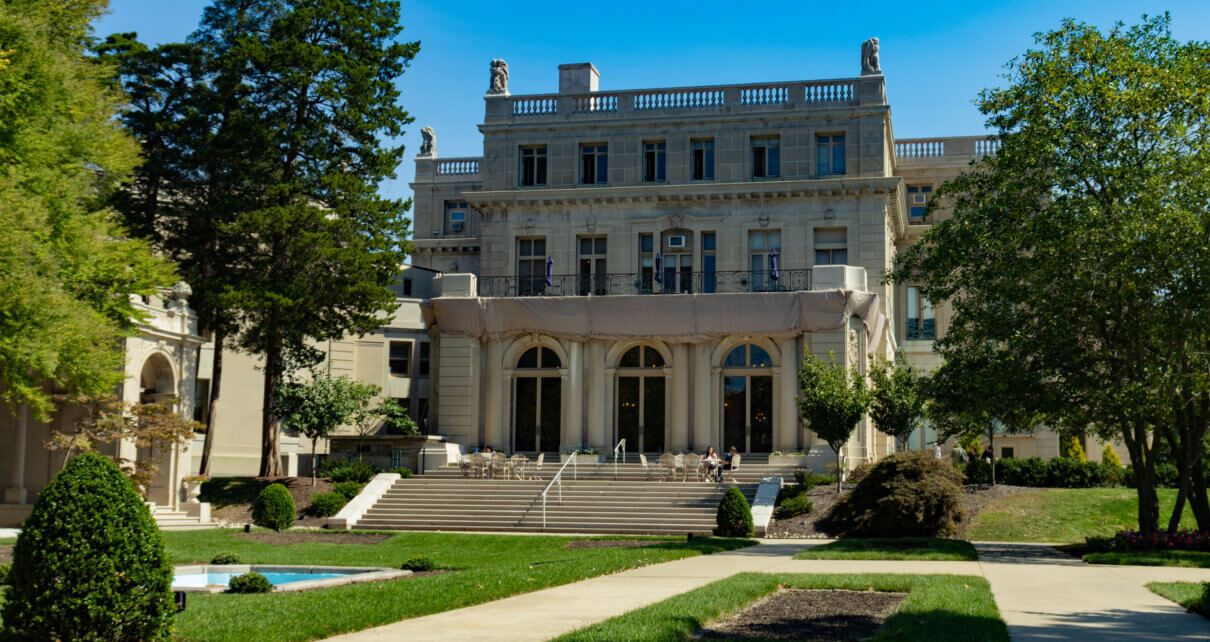The Fall semester began with many departments and other university units having to rebalance and re-prioritize their spending. Departments and organizations were notified of the budget cuts that were rolled out during the summer. “During the early portion of the summer we were told that our [Writing Service’s] budget was essentially going to be cut in half,” said Frank Fury, Ph.D., Professor of English and Director of Writing Services.
According to Fury, these cuts are most likely tied to the fact that Monmouth University fell short on their fresmen enrollment target for the 2024-2025 academic year, largerly, because of complications with the Free Application for Federal Student Aid (FASFA).
“To my understanding, this happened because Monmouth was significantly short of our target in terms of freshman enrollments. I think the target is somewhere around 975 and I believe we were more than 100 enrollments short of that number. Falling that short, where most of our income for the university is tuition driven, naturally that’s going to impact our operation,” Fury continued.
We reached out to President Leahy for a comment who sent us the following statement. “Monmouth University’s incoming class is one of the strongest academic classes that the University has ever brought and it is also one of the most diverse. However, the number of new students who joined us this fall was more modest than expected, which necessitated a budget adjustment. This adjustment occurred mid-summer and reflects good financial practice on the part of the institution. Budgets across the University were examined for areas where adjustments could be made with minimal impact to our mission and academic programming. These adjustments were designed to be equitable across campus. Monmouth’s modest tuition increase was also critical to our balanced budget.”
Additionally, we reached out to Provost, Rich Veit with an ask to shed some light on how various academic departments might have been affected by the budget cuts. His email response suggested that he’s received similar inquiries as of recent, and that he has shared some information with his colleagues who he believes are preparing a response. We have not received any additional information prior to this publication.
A number of departments felt that these “budget adjustments” are in effect budget cuts and expressed what their impact means to student services, such as the Math Learning Center and Writing Services. These services provide Monmouth students with free math tutoring and writing help.
This budget cut has specifically affected Writing Services in a number of ways, but primarily, it has limited the amount of appointments a student can make in one day as some of the writing assistants’ hours were reduced.
“In past years, we were a little more lax where if someone would make two, three, or even four appointments on a particular day, we were able to accommodate that. I don’t think that is something we can accommodate going forward because of the preciousness of those time slots,” said Fury.
Additionally, these centers provide students with on-campus employment opportunities. “I worked 18 hours at Writing Services last year, but this semester I only got eight hours given back to me because the budget was decreased. So, I had to get another job because they cut my hours and I have to pay for a lot of things myself,” said Meghan Reilly, senior English student and Peer Writing Assistant.
The budget cuts affected other student services as well, such as the Math Learning Center. “It made me very conscious of my hiring; balancing having tutors available for the majority of classes while not having too many tutors working simultaneously to be more cost effective. I did end up cutting many hours, like almost halving the amount of coverage I had. I have some points during the day with only one tutor working, which I hate having to put them in that position because it is stressful! I have even been helping students myself as a show of solidarity with the tutors. Not to mention that I removed the Office Assistant position completely. There can be an argument made for having it or not, but at the end of the day not having it means less students working,” said Sevda Sadik, M.ED, Professor of Mathematics and Coordinator of Math Learning Center.
Sadik continued to explain how the budget cuts have impacted the Math Learning Center, “We are making do, but it puts me in a tough spot. I have some tutors working one hour a week. Would you think a job is worth it if they only schedule you for an hour? But, I am truly grateful for my staff, they have stepped up in many ways to help me. We also were supposed to be open on Thursday evenings, but I had to cut that too.”
Student employees have also described how budget cuts have affected their livelihoods. One student who asked to stay anonymous becasuse of the fear of retribution explained, “My job was cut completely and I was only told a few weeks before I came back to campus. I can’t even lie, I’m struggling. No outside businesses want to hire full-time students who can’t take available hours due to classes and involvement with campus organizations.”
Margaret McNeil, senior real estate and political science double major, and employee at Immural Sports, is also struggling with the reduction of her work hours.
“My hours got cut a substantial amount and caused me to have to find an off-campus job a couple of towns over. I love my job on campus, and finding out I couldn’t spend as much time there with the community I formed with my coworkers was really disappointing to hear, especially since this is my last year here at Monmouth,” McNeil said.
Some faculty members also expressed their concerns with the budget cuts. “If the administration is making cuts to budgets that support the academic mission at Monmouth, that would be very concerning as we aren’t seeing any cuts to the generous salaries the university pays to President Leahy, for example, or to members of the senior administration. We also know the university is in a solid financial position and is making significant investments in new initiatives, like the Bruce Springsteen Center and the recently announced Hackensack Meridian Health partnership, so it is disturbing to think that there would not also be generous support for instruction and meaningful student engagement at the same time,” Johanna Foster, Ph.D, Associate Professor and Director of the Sociology Program, said.
Budget cuts also impacted some student run clubs and organizations. According to, Sherly Gonzalez, SGA’s Director of Finance, fifteen student-run clubs experienced cuts to their budget. Monmouth’s Student Government Association (SGA) is responsible for dividing up the given budget for student clubs amongst the organizations in a way that is fair for all clubs. Though some clubs on campus experienced budget cuts, Monmouth’s SGA had an overall increase in annual funding.
“SGA’s allocated funds did not get cut. SGA received $550,000 to allocate to clubs and organizations in 2023/2024 and then in 2024/2025 SGA was able to allocate $559,000 (an increase of $9,000).” Gonzalez went on to further explain that, “The added $9,000 in club and organization funding is the result of a small increase to the comprehensive fee that went into effect for the 2024-2025 academic year.”
“There were 66 clubs and organizations that received funding in 2023/2024 and then 70 clubs and organizations received annual funding for 2024/2025,” said Gonzalez. She also added that if a club’s budget was cut this academic year, it was not a result of less funding from the university, “SGA’s allocation from the University was not cut; however, individual clubs and organizations may have had less funding this year. When allocating to clubs and organizations, SGA first weighs the information that applying groups include in the funding request form that they submit through E-trieve. SGA also considers whether or not a club or organization has effectively used funding it received over the academic year, as well as whether or not the group is able to show that they were actively meeting and hosting programs or events throughout the entire school year. Other factors that may affect how much annual funding a club or organization receives include whether or not a student group was late in submitting its application and/or if it was missing a current roster. If a group failed to participate in required activities that include: fall and spring involvement fairs, open house, and the Monmouth Leads spring leadership conference, that could also impact the funding an applying group receives.”
Some department chairs believe that the cuts may be a fiscally responsible move that won’t affect student learning. Colleen Manzetti, DNP, RN, CNE, Associate Professor and Chair of the Nursing Department, commented, “No one likes to hear the words ‘budget cuts’ and assumes it will have a negative effect on program outcomes. However, if programs are fiscally responsible everyday in the ‘nice to haves’ versus ‘need to have’ that get cut temporarily until the revenue increases and the budget again allows for extras. Clinical programs like nursing are costly to run but students are provided with many resources that can not be eliminated. In nursing, we cut back on other things that will not affect our overall student outcomes.”



